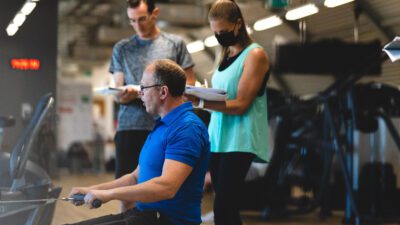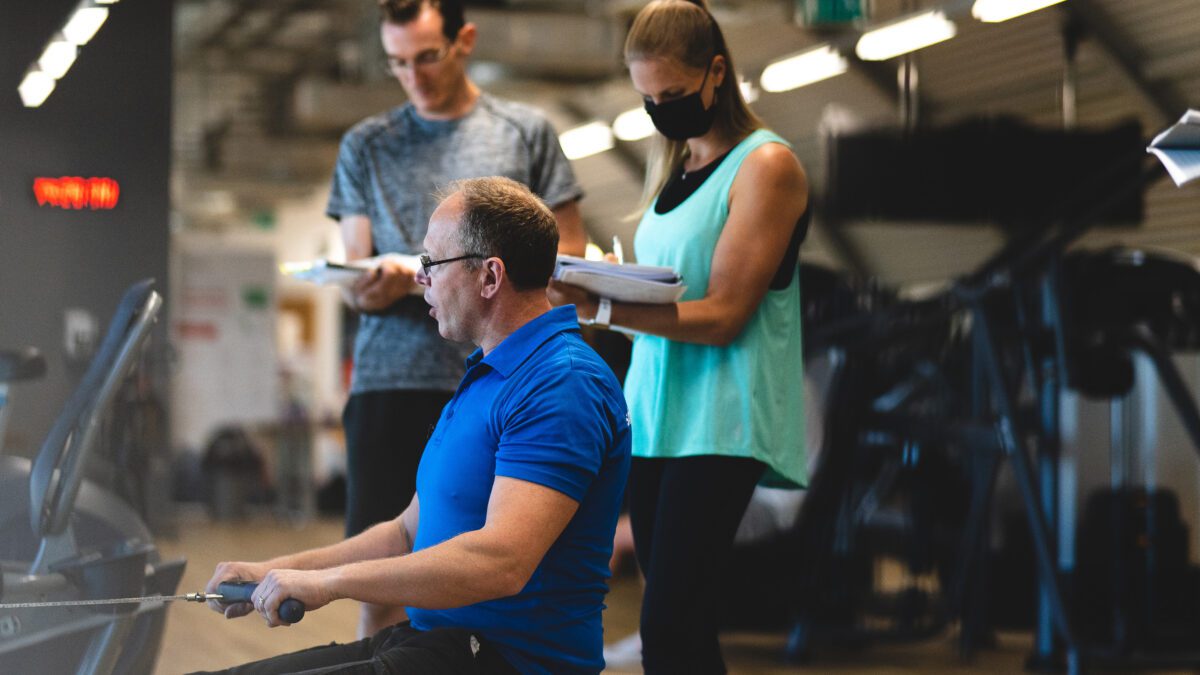



Do your children constantly ask to come with you to the gym?
Concerned about whether it is the right time for them to start their gym journey?
If yes, you do not have to worry. While, fitness classes and personal training have no age limit, and exercise has numerous benefits, not all UK gyms have a free for all age group policy.
Some UK gyms have strict age restrictions, while others, like PureGym, David Lloyd, and Village Gym, have policies that allow young people of a certain age group (at least 16 years) to use gym facilities under constant supervision.
Want to know the best time for your child to join the gym? Keep reading.
This article will discuss these age requirements for going to UK gyms, highlighting gym policies, alternative options, and factors to consider when using the gym at a young age. So, let’s get right to it, shall we?
Did you know that no national law in the UK regulates age restrictions for joining the gym?
Despite this, several UK gyms use a combination of industry standards and personal gym policies to create strategies and determine the minimum age young people can join the gym.
This way, they can reduce liability risk, focus on safety and safeguard the well-being of their members.
Some gym policies vary slightly, with a few restricting young people 17 years and under from using the gym, while others allow children from 14 years with adult supervision.
Besides, the general age requirement for gym access across the UK is typically between 16 and 18 years old.
Most gyms nowadays have multiple intensive workout equipment, like heavy-weight machines, that can pose a risk for young people, especially if they combine it with specific exercises.
So, if anything goes wrong, they can be held liable hence, why most gyms have strict age restrictions.
However, there are a few child-friendly gyms, so it is best to consult the ones you are interested in and inquire about.
When you are looking for a gym for your child, you must pay attention to certain features to ensure your child’s safety. Some of these features include:
To become a personal trainer, you need to be 18 years old of age minimum in the UK. Anyone from the age of 16 can enrol and complete any of our non-practical e-learning courses.
Many gyms will accept applicants of 16 years of age, but be aware that if you are planning to work outside of clubs or leisure centres as a Personal Trainer, an Exercise to Music Instructor or a Pilates Teacher, you may not be eligible for the required insurance until you are 18 years old or over.
For more information on course entry requirements and admissions please contact one of our Careers Advisers who will be happy to answer any of your questions.
There are several important factors to consider when using the gym at a young age, especially if you want to ensure a safe and effective gym experience for your child. Let’s look at some of these factors, shall we?
Even though there are a few child-friendly gyms in the UK, many restrict access to children below the age of 16.
However, there are a few alternative options that will provide the physical activity that your child wants. Highlighted below are a few of them.
Many UK fitness centres offer specialised fitness classes for young people to exercise in a safe and controlled place. Most of the workouts featured in these programs are age-appropriate and under the supervision of qualified professionals. You can also check your local community for classes developed specifically for children, like yoga, Zumba, and martial arts.
Most of the time, schools have sports clubs and fitness facilities that students can use during physical education classes or after hours. Children can use these facilities to develop their fitness and build healthy habits. Besides, most exercises done at school are age-appropriate, and they progress in difficulty as the children grow, reducing the risk of injuries.
Many outdoor activities promote physical fitness, like skateboarding, biking, rollerblading, hiking, and playing in the park. There are also trampoline and bouldering parks where children can play, climb, and jump in a controlled environment.
Apart from personal memberships, some gyms offer family memberships allowing parents or guardians to bring their children to the gym. This alternative allows children to partake in physical activity under the supervision of their parent or guardian. Additionally, children cannot go to the gym alone without an adult.
In the UK, the age requirement for going to the gym is determined by the individual gyms and their policies, which is why some allow individuals ages 14 and above to join with adult supervision, and others allow 18 and above.
But, if you do not find a child-friendly gym for your child to join, there are numerous alternatives that you can choose from, and they will provide the physical activity that your child craves.
Running on a treadmill when you are younger than 15 years old is very risky and can lead to injury. Parents are advised to supervise their children in the gym constantly.
Teenagers should not be doing any heavy lifting as their bones and joints are still developing. However, bodyweight exercises and lightweight lifting are good alternatives.
No, UK gyms do not have a general age limit, but the general age requirement for most of them is between 16 and 18 years old.
Some benefits include easier weight management, reduced chances of chronic illness, stronger bone development, and improved heart health.